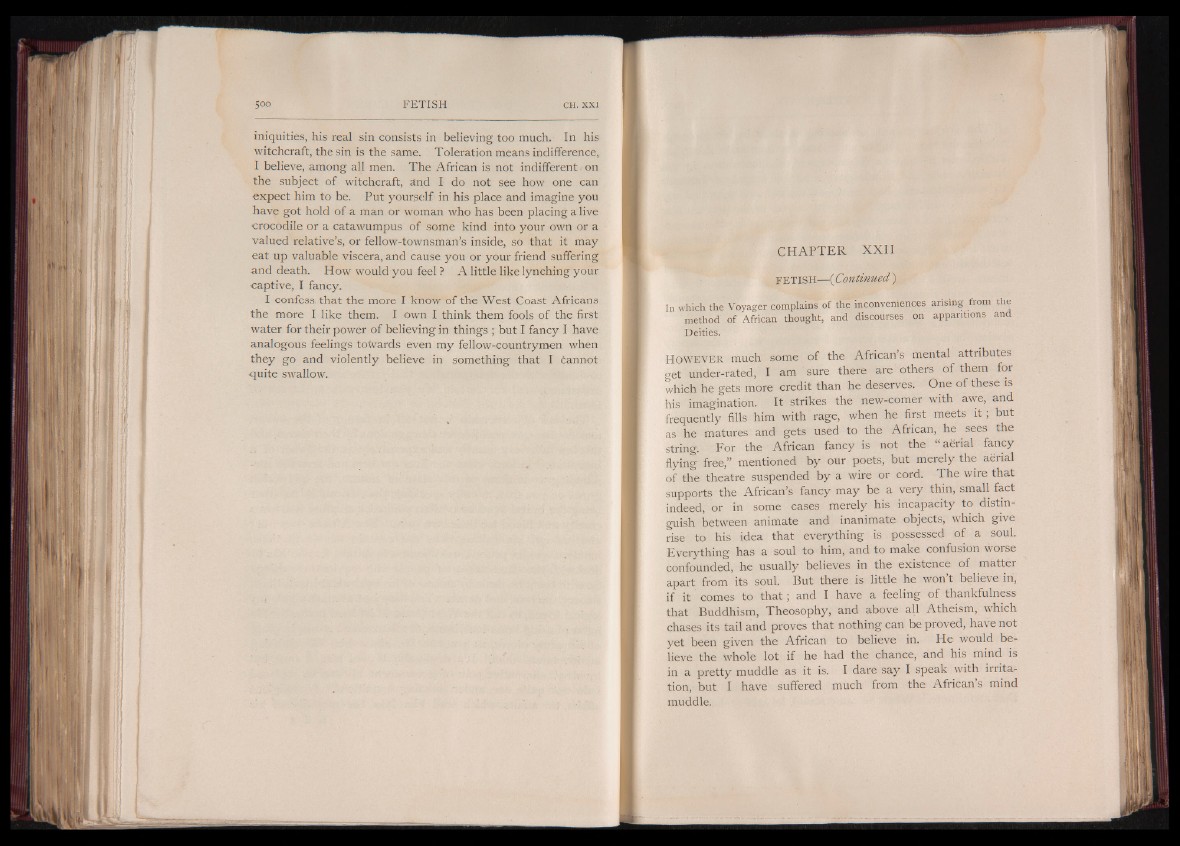
iniquities, his real sin consists in believing too much. In his
witchcraft, the sin is the same. Toleration means indifference,
I believe, among all men. The African is not indifferent (on
the subject of witchcraft, and I do not see how one can
expect him to be. Put yourself in his place and imagine you
have got hold of a man or woman who has been placing a live
crocodile or a catawumpus of some kind into your own or a
valued relative’s, or fellow-townsman’s inside, so that it may
eat up valuable viscera, and cause you or your friend suffering
and death. How would you feel ? A little like lynching your
captive, I fancy.
I confess, that the more I know of the West Coast Africans
the more I like them. I own I think them fools of the first
water for their power of believing in things ; but I fancy I have
analogous feelings towards even my fellow-countrymen when
they go and violently believe in something that I ¿annot
quite swallow.
CH APTER XXII
FETISH— (Continued, )
In which the Voyager complains of the inconveniences arising from the
method of African thought, and discourses on apparitions and
Deities.
HOWEVER much some of the African’s mental attributes
get under-rated, I am sure there are others of them for
which he gets more credit than he deserves. One of these is
his imagination. It strikes the new-comer with awe, and
frequently fills him with rage, when he first meets i t ; but
as he matures and gets used to the African, he sees the
string. For the African fancy is not the “ aerial fancy
flying free,” mentioned by our poets, but merely the aerial
of the theatre suspended by a wire or cord. The wire that
supports the African’s fancy may be a very thin, small fact
indeed, or in some cases merely his incapacity to distinguish
between animate and inanimate objects, which give
rise to his idea that everything is possessed of a soul.
Everything has a soul to him, and to make confusion worse
confounded, he usually believes in the existence of matter
apart from its soul. But there is little he won t believe in,
if it comes to th a t; and I have a feeling of thankfulness
that Buddhism, Theosophy, and above all Atheism, which
chases its tail and proves that nothing can be proved, have not
yet been given the African to believe in. He would believe
the Whole lot if he had the chance, and his mind is
in a pretty muddle as it is. I dare say I speak with irritation,
but I have suffered much from the African’s mind
muddle.